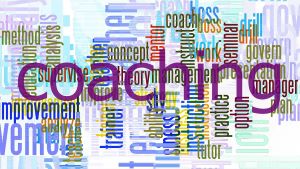Those trained to be executive coaches must spend many hours perfecting the underappreciated art of not giving advice. This must sound very strange, and indeed it is in some ways.
As soon as I began my training as a coach, I attended a seminar where we were told not once but at least five times what is the biggest challenge as a coach. It is not the lack of knowledge to solve our client’s questions, as I thought, but learning to shut up and listen carefully to the client. Remember that the simple act of listening is not the strength of many of us (especially if our personality style is “Influence”).
In addition to listening carefully, we tend to provide advice for everything. That is the big problem; due to our human nature, we believe we are experts in everything (or at least in the subject we discuss). Sometimes, we don’t even let the other person finish talking, and we already rush to judge, compare and advise how the situation or problem should be managed. We grant this authority to ourselves because we think that having experienced something similar in the past gives us the credentials to advise.
But what if our advice leads to a bigger problem? What happens if our suggestion is not workable for the other person as his or her personality differs from ours? We could worsen the situation with the person speaking to us.
Coaching is a methodology that proposes something very different. You change the idea of following the wise adviser and instead aim to find your solutions. An actual coach is an empathetic person with a great capacity for listening and analysis. Through specific questions, the coach seeks turning points to help the client recognize his or her limitations and develop solutions.
When a client has a problem in a company, he or she usually has several options to solve it. The simplest will be to hire a consultant or a consulting firm, which will take time to gather information and then present an action plan that leads to a solution or improvement.
In other words, you pay for them to find and deliver the most appropriate solution to your problem. Consulting is very effective (there are so many consultants on the market for a reason), and, of course, if it deals with a specific topic or if we are limited in time, it is the most convenient option.
But if we think about it, we still need to solve the most critical problem: our ability to find the solution. The negative side of consulting is that it will not necessarily help us grow as professionals because it does not force us to develop the ability to recognize and then respond to a complicated situation, something that we can achieve with coaching.
The coach will not provide us with a tailor-made solution (as a consultant would), and the action plan will take longer (although I know examples of consulting that have lasted for years), but it would help us find and implement our solutions. In other words, the coach will provide us with tools we can use in a specific situation or in another similar one.
Regarding the financial matter, we pay for the saved time. Typically, a consultancy should be more expensive because people are willing to pay for a quick solution to the problem. But we must remember that we will have to pay again for a new consultancy if we encounter a similar situation later in life. In other words, we solve the specific problem but do not change how we manage it.
It must be remembered that at any time, the client will always be free to choose the methodology that is most convenient for him or her. Each one has its advantages.
If you want to try coaching, do not hesitate to contact me via the web or schedule a meeting directly.
Alexander Martinez









